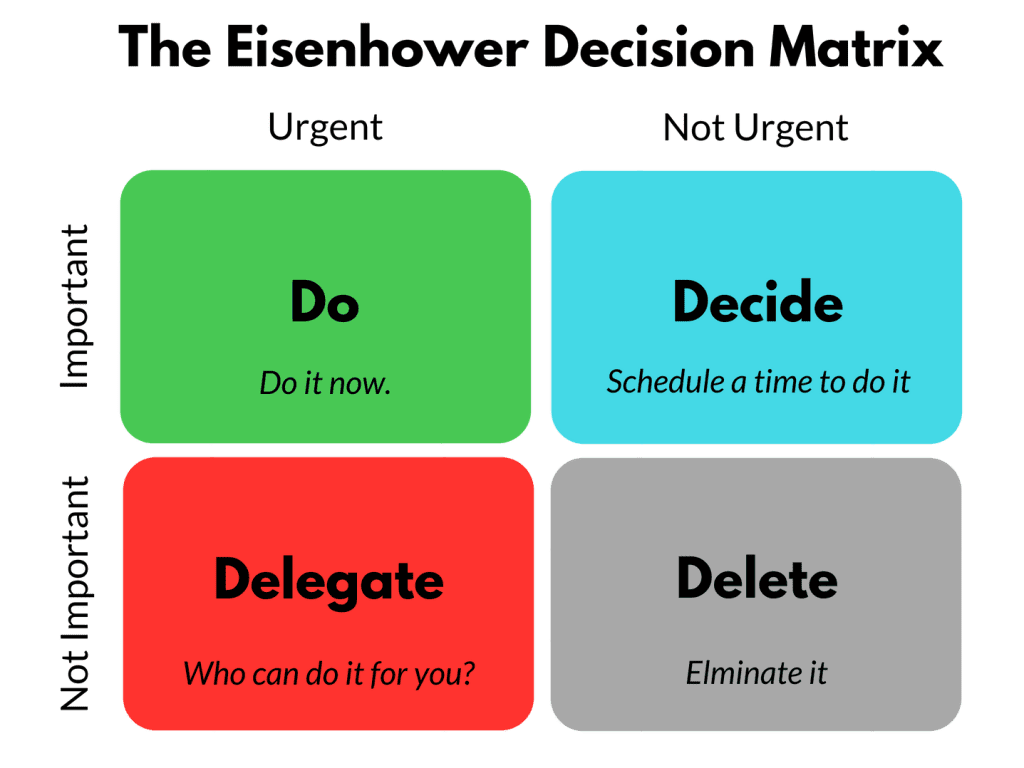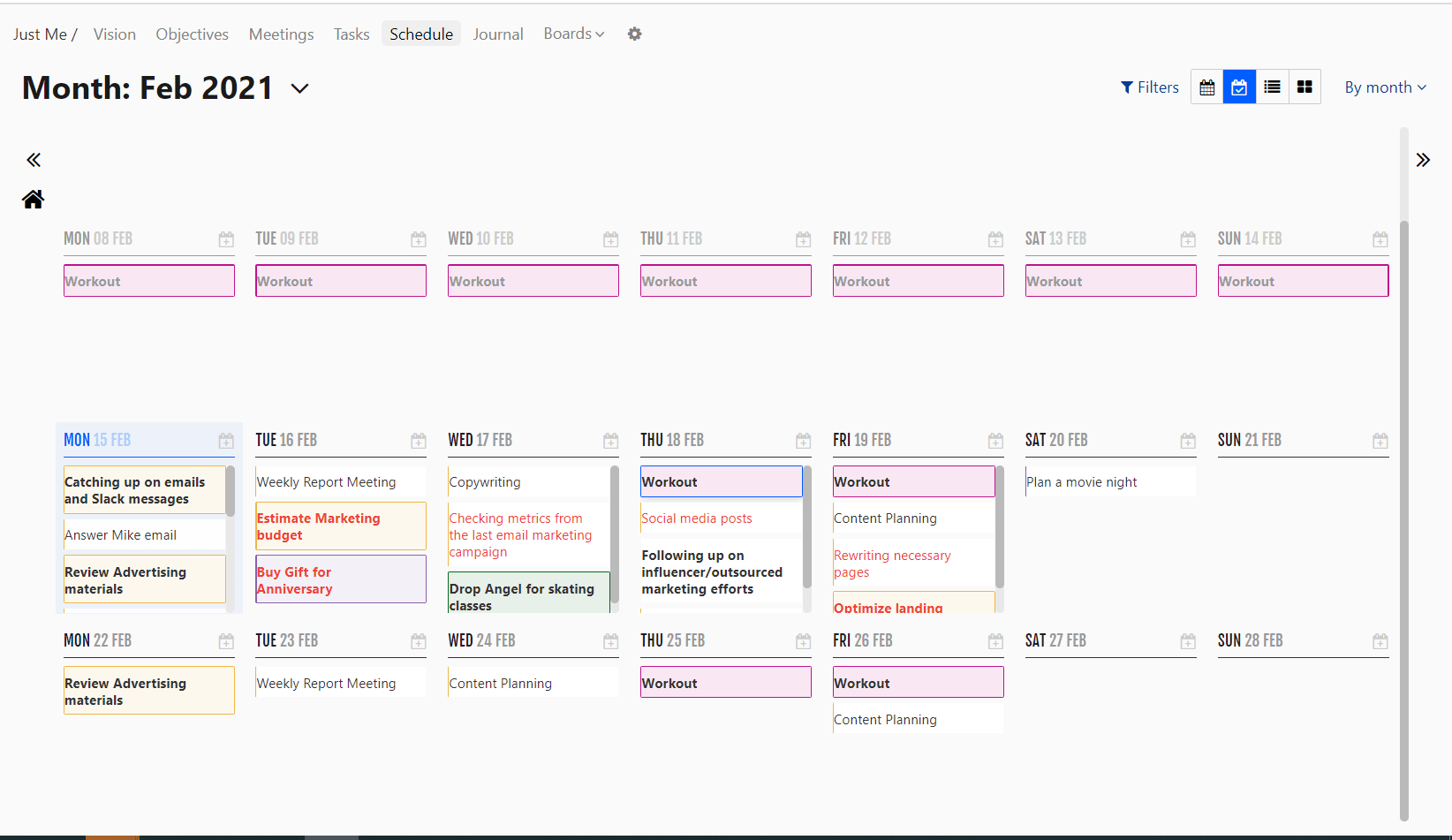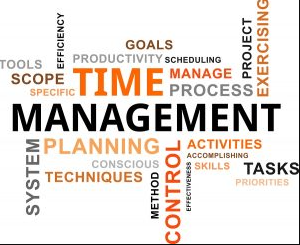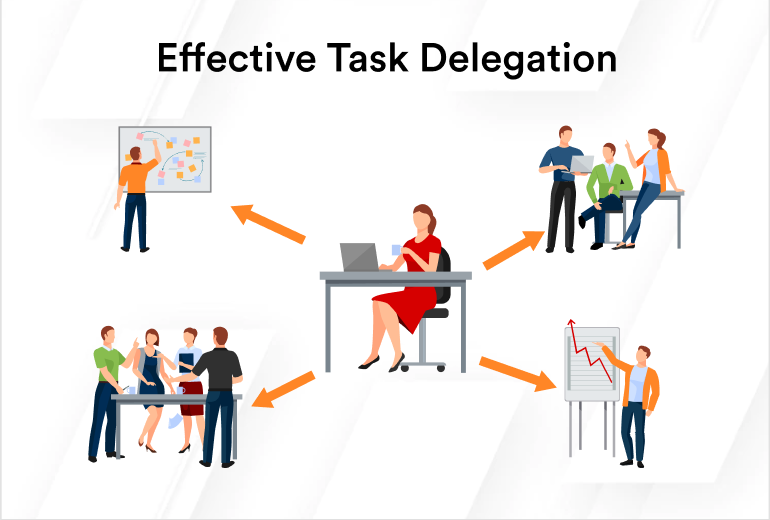In today’s world, managing time well is key to getting more done. Sadly, 82% of people don’t use a time management plan. This makes reaching their full potential hard. Effective scheduling isn’t just planning tasks. It’s mastering strategies that lead to more productivity, less stress, and better efficiency.
Studies show that 44% of workers do best in the early morning. Another 31% peak in the late morning. Using these peak times can greatly boost productivity. This article shares 12 great tips to improve your daily routine. These tips will help you do more each day.
Microsoft says taking short breaks is very helpful. They let the brain rest and reduce stress. The 80/20 rule tells us that 80% of our results come from just 20% of our efforts. Using these ideas can make you much more efficient and productive.
The Eisenhower Matrix helps sort tasks by importance and urgency. It shows you what really needs your attention. Also, 37% of jobs can now be done from home. This became more common during the COVID-19 pandemic. In April 2020, more than 50% of people said they were working from home. By October, this dropped to 33%. Yet, most people still like working from home. This shows how important good time management is when you’re at home.
On average, people in the U.S. spend 25.4 minutes getting to work. This time could be used to plan your day or unwind. Adults should get seven to nine hours of sleep for the best brain function. Using ‘pomodoros,’ 25-minute work blocks followed by breaks, can also help you stay focused.
Setting SMART goals is important. They must be Specific, Measurable, Achievable, Realistic, and Time-bound. Time blocking, dedicating specific times for tasks, helps you focus and get more done.
The Importance of Time Management
Time management is key for making your day better and reducing stress. Surprisingly, 82% of people don’t manage their time well. This is despite its benefits like more productivity, less stress, and hitting deadlines.
Good time management means you control your work and life better. It helps in setting priorities right. It also boosts energy levels by using time and resources well.
Understanding Time Management
Time management is not just about finishing tasks. It’s about setting up a system for better time use. Techniques like the Pomodoro Technique and time blocking help. They focus your effort on one task at a time without distractions.
Managing time well is key to better work and less stress.
Key Benefits of Time Management
The perks of managing your time well are huge. Engaged workers who talk well and aren’t distracted work 20% more efficiently. Good time management helps meet deadlines by planning and setting goals.
It leads to better focus, more productivity, and a balanced life. This improves physical and mental health. Using productivity techniques can also help your career grow.
Planning Your Day for Maximum Efficiency
Planning your day well is key to being efficient. Experts like David Allen and Stephen R. Covey teach the importance of having a clear start. This helps you focus on urgent and important tasks. This part talks about strategies for daily planning and organizing tasks to boost productivity. Here are vital steps for effective planning.
Create a To-Do List
Making a detailed to-do list is a great way to increase efficiency. Studies show people waste over 60% of their time. This often happens while scrolling on social media. A good to-do list organizes tasks and shows what to do first. Making this list the night before starts your day off with clear directions. This can save you from losing around seven months a year to unproductive habits.
Set Achievable Goals
It’s important to set realistic goals for daily planning and efficiency. Stephen R. Covey says focusing on task urgency and importance boosts productivity. Planning tasks according to your body’s natural rhythms helps make the most of high energy times. Using the “eat the frog first” method means doing the hardest tasks first to stop putting them off. This improves productivity for the day.
Prioritizing Tasks
It’s very important to know how to pick the right tasks to focus on. This helps you use your time well. You learn which tasks need to be done now and which ones can wait. This way, you and your team can work on things that really help you make progress. It also stops you from working on things that don’t matter much.
Ranking by Importance and Urgency
Knowing how to tell which tasks are urgent and important is key. Our brains like it when we finish these tasks, making us feel good. By figuring out which tasks are top priority, you can get more done better and faster. Teamwork.com helps teams see which tasks are most important. This helps everyone stay focused and do their best work.
The Eisenhower Matrix

The Eisenhower Matrix is a smart way to decide what to do first. It splits tasks into four groups: do now, plan to do later, let someone else do, and don’t do. This method helps you focus on the right things. This makes sure important tasks get done first.
For big projects, using a system like the Eisenhower Matrix makes everything clearer. Teamwork.com has tools to help track and manage your work. Keeping an eye on what tasks are most important helps teams stay on track. This helps you overcome unexpected problems and get better at estimating how long tasks will take.
Limiting Distractions
Understanding how to beat barriers in productivity boosts workplace efficiency. Identifying distractions and using techniques to minimize them helps create a focused workspace.
Identify Common Distractions
Over half of employers say mobile phones reduce work output. 24% of workers use their phone for personal reasons at work for at least an hour daily. It takes about 23 minutes to focus again after being distracted. Social media, online shopping, and web browsing are common distractions too.
Techniques to Minimize Distractions
Using smart focus methods can lower these work barriers. Steps like using app blockers, turning off notifications, and using noise-canceling headphones help. Block scheduling lets you work in set time blocks to better handle interruptions.
Set times for checking emails and try the Pomodoro Technique for 25-minute focus periods. To dive deeper into staying attentive and avoiding distractions, set clear rules. This means keeping non-work chat to a minimum.
Avoiding Multitasking
Multitasking might seem like a good way to get more done, but it’s not. Studies at Stanford University show us a different story. Trying to do many things at once can actually make us 40% less productive. When we use several devices at the same time, our brain works 5-15% worse.
The Myth of Multitasking
Many people think doing multiple tasks at once is efficient. But, this is not true. As we age, our brain’s control center slows down, making multitasking harder. This affects how well we work and think. After a distraction, it takes us about 25 minutes to focus again.
Focus on One Task at a Time
It’s better to focus on one thing at a time. This helps us concentrate better and work better. Mindfulness and breaking big tasks into smaller pieces can help, too.
Limiting distractions can also improve focus. Strategies like timeboxing and checking emails only at set times are helpful. These methods enhance our work quality without the downsides of multitasking.
Effective Scheduling Tools

In today’s world, we all need good scheduling tools to stay on top of things. These tools range from advanced software to simple calendar tips. They help us plan our days better and save time.
Time Management Apps
Time management apps are really helpful. Surprisingly, 20% of people still use pen and paper for scheduling. But, switching to digital can save a lot of time. The old way could take hours for just approving timesheets.
Tools like Sparkrock’s Smart Scheduling make it easier. They add features for training and helping employees manage their own schedules. Also, using software like Jira and Confluence whiteboards helps. They make managing tasks and team projects smoother.
Using Calendars Efficiently
Making the most of calendars is key to keeping schedules clear and without mix-ups. Paper schedules are hard to manage and can confuse. Going digital, like using Google Calendar, helps everyone stay updated easily.
With digital tools like Calendly, Doodle, and Zoom.ai, scheduling ranges from simple to smart. These options meet various needs. They help businesses be more efficient, following rules and using resources well.
The Power of Taking Breaks
Taking breaks is vital, not just stopping work. They boost productivity by reducing stress and improving focus. This makes us more productive when we return to work. It’s key to know why breaks help to use them right.
The Science Behind Breaks
Short, regular breaks keep us motivated and less stressed. The Pomodoro Technique is a method where you work for 25 minutes then break for 5. This method keeps motivation and efficiency up.
Short breaks also raise dopamine, which makes our memory and thinking better. Plus, moving around or doing something fun helps too. Even talking to people can be good for the brain.
Activities like a quick walk improve how we think and stay alert. Meditation, naps, or music also help our mind and body. They make us more productive and less stressed at work.
Implementing the Pomodoro Technique
The Pomodoro Technique is great for staying productive with a busy schedule. It matches work with our natural focus, reducing tiredness and boosting attention. Tools like timers or apps make sticking to breaks easy.
Try different breaks to see what helps you most. A break menu of activities can keep your breaks helpful, not just time-wasting. Planning breaks can stop stress from building up, keep you working well, and cut down recovery time needed later.
Delegating Tasks
Delegating tasks is key to better productivity through teamwork. By sharing work, leaders can focus on big decisions. It’s important to know which tasks to share. Team members need clear instructions and what you expect from them.
Identifying Delegable Tasks
Think about the task’s importance before choosing someone to do it. Put tasks into high, medium, or low priority groups. This helps decide which to delegate. Choosing tasks that fit an employee’s skills leads to good outcomes. Dr. Scott Williams of Wright State University says this also helps workers grow.
Tips for Effective Delegation
Choosing the right person for the job is crucial. Be sure they have the skills needed. It’s important to explain what to do, when it’s due, and what tools are available. Harvey Mackay thinks delegating isn’t just dumping work but empowering others.
Stephen Covey advises to focus on the results you want, not how to get them. This lets employees decide how to achieve goals. Regular check-ins and feedback help keep things on track. Make changes when needed.
Having a good delegation process helps employees grow. It creates trust and ownership. Sharing tasks well makes teams more productive and united.
Conclusion
In the world of getting things done, how we schedule our time is key to success. Our look into scheduling shows how changing work hours can make things better. It also helps people handle their time well. Work patterns, like 12-hour shifts, show we can adapt in jobs that never stop.
Using a 4/10 work schedule lets workers finish early and take an extra day off. This can make them happier and more productive. Seasonal schedules can save money by hiring temp workers during busy times. Yet, sticking to a 40-hour week can make work feel dull and less satisfying. So, it’s important to change schedules to fit the team’s needs.
Good scheduling means planning, staying focused, and using the right tools. It makes work better even with part-time jobs or overtime. Tools like Trello or WeekPlan help manage tasks and deadlines. Embracing these methods makes work smoother and life more balanced.
FAQ
What are some effective time management strategies?
Effective strategies include making a to-do list and setting goals you can achieve. Use scheduling tools like apps. Prioritize tasks by what’s urgent and important. And don’t forget to take breaks to stay sharp.
How can planning my day improve my productivity?
Planning your day can make you more productive. Make a detailed to-do list. Set goals that you can really hit. This way, you can tackle tasks better and avoid last-minute stress.
What is the Eisenhower Matrix and how does it help in task prioritization?
The Eisenhower Matrix sorts tasks by urgency and importance. It helps figure out what needs to be done now and what can wait. This boosts productivity by managing priorities wisely.
How can I minimize distractions while working?
To lessen distractions, know what takes your focus away like phones or social media. Use apps to block distractions, turn off notifications, and use headphones that block out noise. This creates a space where you can concentrate better.
Why is multitasking considered inefficient?
Multitasking is seen as not efficient because it splits your focus. It’s better to work on one thing at a time. This way, you can give it your all and finish tasks faster.
What are some recommended time management apps?
Some great time management apps are Todoist for tasks, Asana for projects, and Google Calendar for scheduling. They help manage your time better, both at work and home.
What is the Pomodoro Technique and how does it enhance productivity?
The Pomodoro Technique uses short, focused work periods, usually 25 minutes, followed by a 5-minute break. It fits well with how we naturally concentrate. This keeps you productive and reduces stress.
How can I effectively delegate tasks to improve my productivity?
To delegate well, identify tasks others can do and find the right people for them. This lets you manage your workload better. It frees you up to focus on things that need your expertise.

More Posts
Balancing Act: How to Manage Your Time for Both Gaming and Studying
College life is full of balancing acts. Students juggle studying with personal interests like gaming. They need to find a way to do well in school and still enjoy playing games like Rainbow...
7 Productivity Experts to Follow on Social Media
In our digital age, more than 60% of people use social media. Facebook, Instagram, and TikTok are now key for productivity tips. Many of us struggle to balance work and life. But, some...
8 Best Employee Productivity Software You Should Check Out
In an era where digital transformation is reshaping businesses, leveraging the right tools can significantly enhance team efficiency and productivity. This is where the role of employee productivity software comes into play. Such...
6 Best Books for Goal Setting to Improve Your Productivity
Now, you can turn over your life by turning pages! Don’t believe us? With outstanding books for goal setting, you can now speed up your goal-setting process. Books on goal planning written by...


